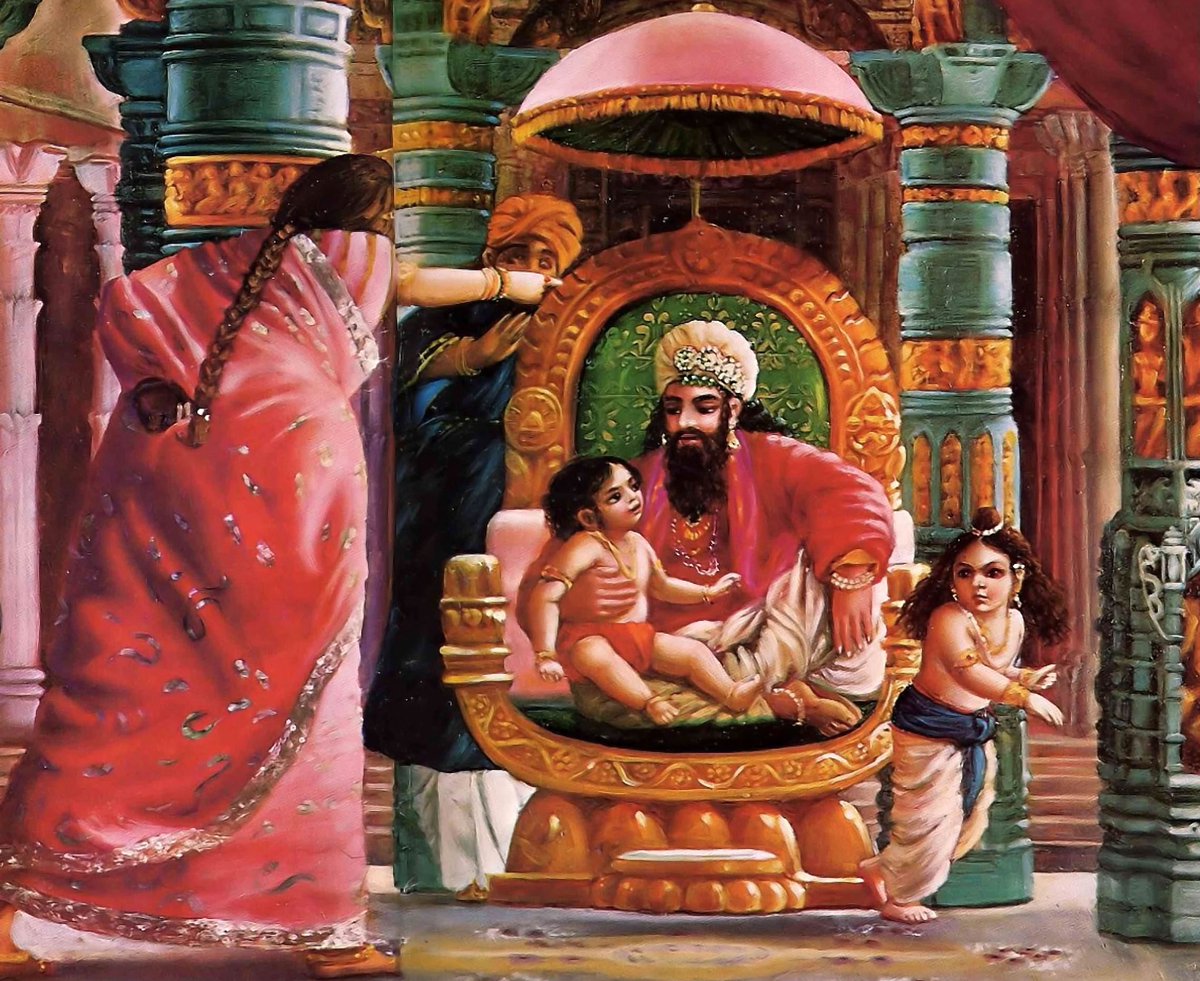
Avadhūta-Gītā: The 24 Gurus
खण्डः-iii
On hearing this Question, Dattātreya-jī was Pleased.
He asked.
श्रीब्राह्मण उवाच:
सन्ति मे गुरवो राजन् बहवो बुद्ध्युपाश्रिता:।
यतो बुद्धिमुपादाय मुक्तोऽटामीह तान् शृणु॥
(ŚB~11.7.32)
(1/8)
#ŚrīmadBhāgavata
खण्डः-iii
On hearing this Question, Dattātreya-jī was Pleased.
He asked.
श्रीब्राह्मण उवाच:
सन्ति मे गुरवो राजन् बहवो बुद्ध्युपाश्रिता:।
यतो बुद्धिमुपादाय मुक्तोऽटामीह तान् शृणु॥
(ŚB~11.7.32)
(1/8)
#ŚrīmadBhāgavata

"O King, I had many Gurus & I learned from all of them according to my Understanding”
He did Not egoistically say, “I learned it all.”
He said, “They are all my Gurus.
They taught me everything.”
Actually, the Truth was that he had kept learning from all of them.
He did Not egoistically say, “I learned it all.”
He said, “They are all my Gurus.
They taught me everything.”
Actually, the Truth was that he had kept learning from all of them.
Only one who keeps learning from his experiences is Truly intelligent.
We all want our bank balances to increase, do we Not?
Yes.
Do you know that there is also a bank of Knowledge?
It is a bank where our balance always keeps Increasing.
Everything we Learn from our experiences
We all want our bank balances to increase, do we Not?
Yes.
Do you know that there is also a bank of Knowledge?
It is a bank where our balance always keeps Increasing.
Everything we Learn from our experiences

in Life;
Sorrow,
Joy,
Difficulty,
Success,
Failure
accumulates as wealth in our bank of Knowledge.
We should thus keep Learning in life, whether from
Grief,
Rejection,
Sadness,
Censure, or Praise.
We should keep Learning from every experience.
If we Trust someone & are later
Sorrow,
Joy,
Difficulty,
Success,
Failure
accumulates as wealth in our bank of Knowledge.
We should thus keep Learning in life, whether from
Grief,
Rejection,
Sadness,
Censure, or Praise.
We should keep Learning from every experience.
If we Trust someone & are later
betrayed by them, we should Not simply keep cursing them.
We should Learn from that experience as well,
for there is No point in brooding.
It is better to move on & consider it a lesson Learned.
Dattātreya-jī explained to King Yadu the lessons he had learned from his 24 Gurus.
We should Learn from that experience as well,
for there is No point in brooding.
It is better to move on & consider it a lesson Learned.
Dattātreya-jī explained to King Yadu the lessons he had learned from his 24 Gurus.

Keep in Mind that he was a sannyasi, so he learned from those Gurus only what was right & appropriate for him.
This does Not mean every person will learn the same lesson.
One learns according to one’s stage in Life, Conditions, & Evolution.
To whatever extent one can Learn for
This does Not mean every person will learn the same lesson.
One learns according to one’s stage in Life, Conditions, & Evolution.
To whatever extent one can Learn for
one’s greater good, is best.
For example,
There are many commentaries & interpretations on Shrīmad Bhagavād Gītā;
there is Nothing wrong with this.
However, We should be careful which Meanings & Interpretations we apply in our Life.
For example,
There are many commentaries & interpretations on Shrīmad Bhagavād Gītā;
there is Nothing wrong with this.
However, We should be careful which Meanings & Interpretations we apply in our Life.
It is Not right to adopt foolish Meanings & Interpretations, thereby deluding our own Mind and others’ Minds.
to be Continued,.,,
।श्रीकृष्णर्पणमस्तु।
। ŚrīKṛṣṇapaṇamastu।🙏
#ĐGītāUvāca
#SanātanaDhārma
to be Continued,.,,
।श्रीकृष्णर्पणमस्तु।
। ŚrīKṛṣṇapaṇamastu।🙏
#ĐGītāUvāca
#SanātanaDhārma

Link for Avadhūta-Gītā: The 24 Gurus : खण्डः- i &ii👇
https://twitter.com/AdiShloka/status/1507632304469905412?t=9h--1txQRZoWlYNZkIV0cg&s=19
• • •
Missing some Tweet in this thread? You can try to
force a refresh
















